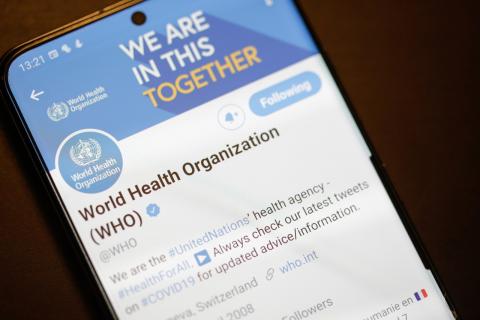Those doing research on controversial topics such as radiation, climate change, genetically modified organisms, animal research, nuclear energy, gender studies or covid-19 may have found themselves in the crosshairs of people who have extreme views about their research.
These views sometimes turn into harassing attitudes, which can include abusive emails, trolls on social media, threats to personal safety, complaints to institutions or regulatory bodies, bombardment with freedom of information requests or defamatory publications.
A survey conducted jointly by the journal Nature and the Science Media Centres in Australia, the UK, Germany, Canada, Taiwan and New Zealand with 321 researchers from these countries, the US and Brazil found that 40 % experienced emotional stress after speaking to the media about covid-19. Some 22% received threats of physical or sexual violence and 15% endured death threats.
Such practices can not only delay the investigation and pose a reputational risk to the individuals involved, but can also prevent them from engaging effectively with the media, the public and other actors. But more serious is the impact on the emotional health and well-being of the sufferer.
"There is a serious risk that researchers will focus on responding to those with extreme views rather than talking to the media, the general public and political representatives. This means that valuable opportunities to communicate with the public, who often have not formed an opinion on the issues, may be missed," warns the UK's Science Media Centre.
As an independent press office that helps get research rigorously into the media, the UK's SMC is an expert on controversial issues and has worked with scientists who have been the subject of such attacks. To help address this serious problem, it has published a series of recommendations which we summarise and adapt below.
Taking perspective and analysing the situation
Sometimes it may seem that there are more people who have extreme opinions about your research than there really are. In most cases, there will only be a very small number, but they make a lot of noise. Those who support your work are usually the silent majority. It may be useful to ask yourself these questions:
- How many people have extreme views about my work?
- Are they representative of the general public?
- Do they represent policy makers, research funders, the patients I treat, or other important groups?
- Do they have significant influence over any of them?
- How many people support what I am doing?
It is also important to remember that you are doing research that you believe in. If you can communicate your views effectively, most people will understand you.
Don't allow yourself to be silenced
Researchers who come under attack often shy away from working with the media because they worry that it will attract more criticism. However, if you stop collaborating with the media, you may find it difficult to reach the public, creating an information vacuum that critics can exploit. If you collaborate with the media, you can get the message across to the public and to policy makers.
Communicating research
When criticised, it is understandable that many researchers become defensive and focus on responding to criticism. While there are times when you will need to respond, don't let this be a constant at every opportunity to communicate your research.
It is important to distance yourself from accusations about your work and think about the positive message you want to convey. Even if the public has heard these accusations, they may not have made up their minds, so defend your work with pride and work with your institution's communications department to promote your research, thinking about what society may be most interested in.
Think about what you want to communicate
Researchers who are targets of extreme views are often caught in a dialogue with those who make accusations about their work. This takes up so much of their time that they are unable to focus on communicating with a wider audience. So before engaging in such a dialogue, ask yourself whether the relationship with those with extreme views will have any impact: will it change their minds? The answer is almost always no.
The advice from experts in the field, including the police, is to avoid contact with such extreme voices. Instead, focus on those who are interested in hearing your views, such as the general public, the media, policy makers or patient groups.
Honesty and transparency about the area of research
Honesty and transparency become even more important when you are in the spotlight. Make sure you have declared any facts that could be construed as a conflict of interest, such as your funding sources or business ties.
Speak frankly about any uncertainties in your work and explain the limitations of the research. Unfortunately, those in the spotlight sometimes reveal less information for fear of giving extremists ammunition. Proactively communicate any facts that you think could be used against you. If the information comes from you, you have the opportunity to give context and explain the background, whereas if you wait, this information could be seized upon by those who do not like your research, who will interpret it negatively.
How to respond on the internet and social media
Very often, the internet and social media are the channels of choice for those who hold extreme views on a controversial issue to amplify their message and make noise. The very nature of social media, which operates 24 hours a day, can cause any critical message to go viral quickly. In real time, any criticism can become very personal and often upsetting. That said, it can also disappear as quickly as it erupts and it is important to keep perspective on the relative importance of the comments being made.
- Remember: when reading criticism on social media or any other online source it is worth bearing in mind that these posts are often only supported by a small number of people who already hold those views. A much larger proportion of the people you will reach will understand your point of view.
- Enlist the support of social media influencers.
- Instead of following discussions in real time, ask someone else to keep an eye out and only let you know if they think there is something new you need to know.
- The internet offers the opportunity to connect directly with the public, so make sure that information about your research is available online, such as your own or your institution's website.
- If comments become abusive on social media, report it on the social media platform itself, which usually includes a reporting option. You can also report it to the police.
- Consider joining with other experts in the field to create a professional group, with a website and social media channels to provide more information and resources about your investigations.
Be prepared to receive criticism, but not predominantly so
It is worth preparing a rigorous defence against criticism. Write them down and file them for future use, but avoid spending a lot of time responding to every single criticism, whether on social media or responding to emails from users with extreme views.
Where to get support
Don't suffer alone. There are many people who have had similar experiences who can give you advice, colleagues who can support you, your own institution and different organisations, not forgetting law enforcement agencies.
- Colleagues: do they know you are going through this? If they don't know, you should tell them as they may be able to support you. They may be going through a similar experience and you can deal with it together.
- Your superiors: do your bosses know what is happening? In serious cases, management should be informed and will be able to help if complaints are made against you, as they will know the background.
- Your institution: the institution where you work should also have support mechanisms in place to deal with criticism on social media, in the media and to help with legal and security advice if necessary.
- Research funders: they may want to know if you are being targeted. They may offer support and may also be targeted for having funded the research.
- Journal publishers: if you have published your research and receive criticism related to the publication process, you should inform your publisher so that they can assess whether an investigation is necessary.
- Science Media Centre: SMCs can offer support to researchers working in controversial areas that may be in the news, helping them to engage with the media to make their voices heard. In some cases, we can also raise awareness of the harassment they are experiencing with the media and other stakeholders.
- Police: have channels for filing complaints depending on the type of harassment you are experiencing.
- Ministry of Science and Innovation: if sexual or gender-based harassment occurs, the ministry has a protocol in place in all its public bodies. It also has an Equality Unit that ensures compliance with this protocol.




